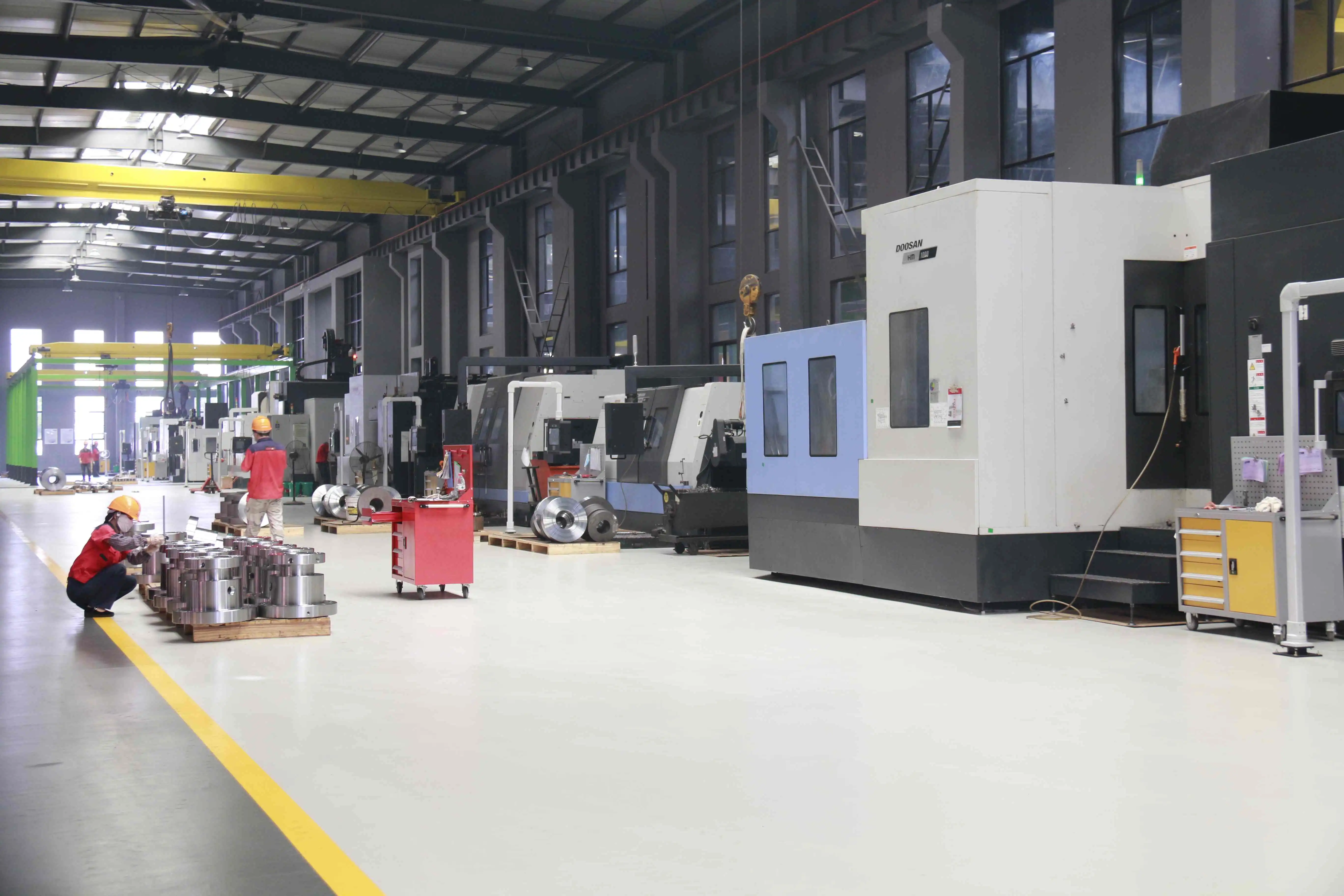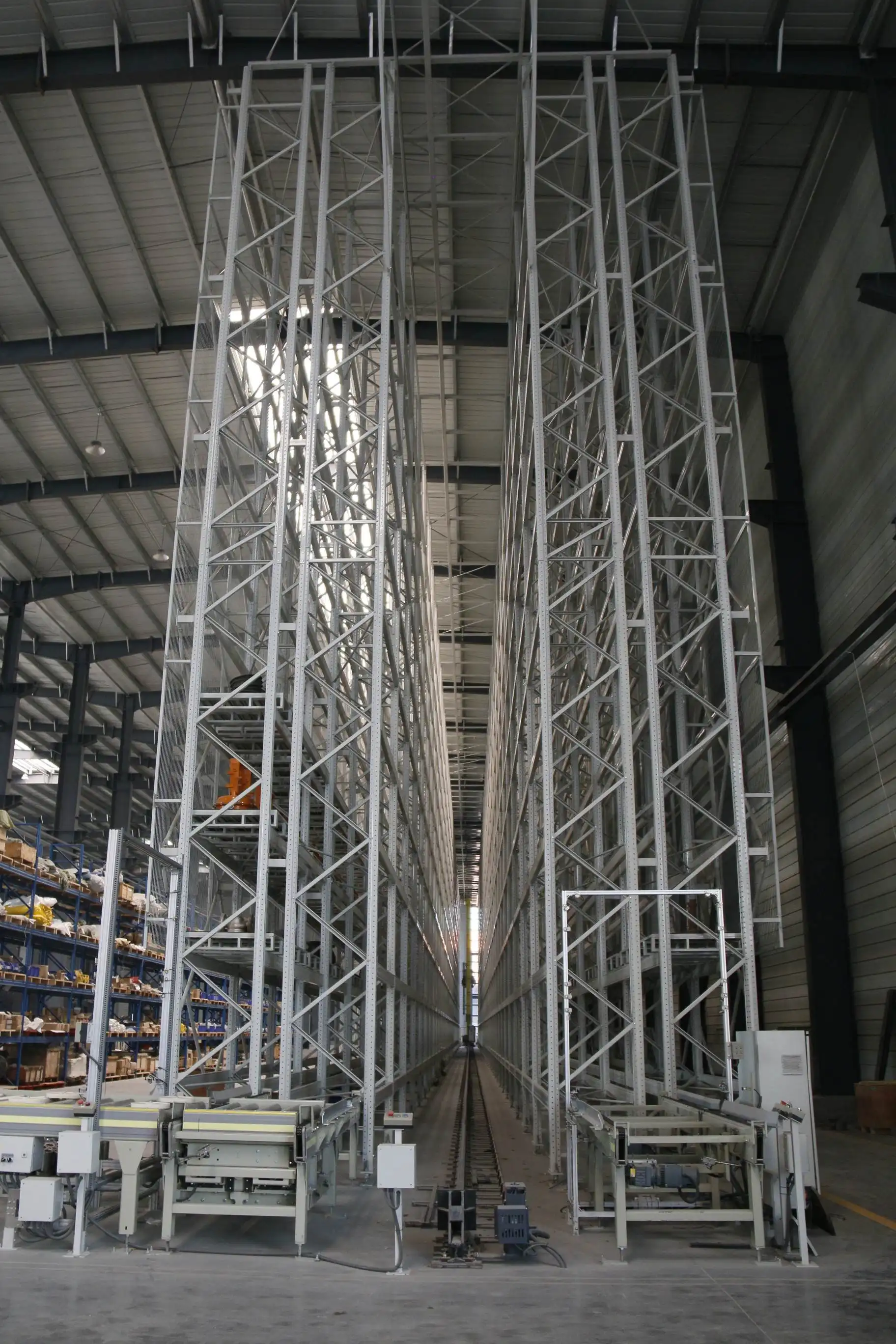How a Lightweight Single Seat Control Valve Can Boost Your System's Responsiveness?
Are you struggling with sluggish system response times that compromise your operational efficiency? In today's demanding industrial environments, where milliseconds can mean the difference between optimal performance and costly downtime, system responsiveness has become a critical factor. A lightweight Single Seat Control Valve emerges as the game-changing solution that addresses these pressing concerns. These advanced control devices offer unparalleled speed, precision, and reliability, transforming how industrial processes respond to control signals and ensuring your systems operate at peak efficiency with minimal lag time.
Understanding Single Seat Control Valve Technology and Performance
-
The Engineering Excellence Behind Lightweight Design
Modern Single Seat Control Valve technology represents a significant advancement in fluid control engineering, where lightweight construction meets exceptional performance capabilities. These valves incorporate innovative materials and design principles that reduce overall weight while maintaining structural integrity and operational reliability. The lightweight characteristic doesn't compromise durability but rather enhances the valve's responsiveness by reducing the mechanical inertia that typically slows down traditional heavy valve systems. The engineering behind lightweight Single Seat Control Valve construction involves advanced metallurgy and precision manufacturing techniques. High-strength alloys and composite materials are strategically employed to minimize weight while ensuring the valve can withstand extreme pressures, temperatures, and corrosive environments. This careful balance between weight reduction and performance optimization results in valves that respond faster to control signals, consume less actuator power, and provide more precise flow control throughout their operational range.
-
Enhanced Response Characteristics Through Innovative Design

Innovative upper-guided structure, and high flow characteristic accuracy make this valve stand out from the rest. The superior responsiveness of lightweight Single Seat Control Valve systems stems from their optimized mechanical design that minimizes friction and maximizes control precision. The reduced mass of moving components allows for quicker acceleration and deceleration during operation, resulting in faster response times to process control signals. The streamlined flow path design in these valves eliminates unnecessary turbulence and pressure losses that could otherwise impede system responsiveness. S-shape flow passage that features low-pressure loss allows a large flow capacity, rangeability, and high accuracy. This optimized flow geometry ensures that changes in valve position translate immediately into corresponding flow rate adjustments, providing the rapid response characteristics essential for dynamic process control applications.
Key Advantages of Lightweight Single Seat Control Valve Systems
-
Superior Speed and Precision in Control Applications
The lightweight nature of modern Single Seat Control Valve designs directly translates into improved system responsiveness through several mechanisms. First, the reduced valve mass requires less actuator force to initiate movement, enabling faster response to control signals. This characteristic is particularly valuable in applications requiring frequent position changes or rapid response to process disturbances. The single-seat valve has an excellent performance in low pressure and small diameter and has good sealing performance. Characteristics such as quick opening are determined by the shape of the spool. The precision-engineered spool geometry in lightweight Single Seat Control Valve systems enables rapid opening and closing actions while maintaining accurate positioning control. This quick-response capability ensures that process variables remain within tight control limits, reducing variability and improving overall system stability.
-
Reduced Energy Consumption and Operational Efficiency
Lightweight Single Seat Control Valve technology significantly reduces the energy requirements for valve operation, contributing to overall system efficiency. The decreased mass of valve components means that actuators can operate more efficiently, consuming less compressed air or electrical power while delivering superior performance. This energy efficiency translates into lower operational costs and reduced environmental impact over the valve's service life. The improved efficiency extends beyond just actuator power consumption. A small and lightweight single-function control valve with specifications and structure limited to the range of JIS10K, making specification selection easy. The simplified design and lightweight construction reduce installation complexity and maintenance requirements, further contributing to operational efficiency. Systems equipped with these advanced valves experience reduced downtime and lower maintenance costs while delivering enhanced performance.
Applications and Performance Benefits in Industrial Systems
-
Petrochemical and Oil & Gas Applications
In petrochemical and oil & gas applications, where CEPAI Group Co., LTD. has established strong supplier relationships with major companies including PetroChina, Sinopec, and CNOOC, lightweight Single Seat Control Valve systems provide exceptional performance advantages. These applications demand rapid response to changing process conditions while maintaining tight control over hazardous materials and extreme operating conditions. The lightweight design enables faster response to emergency shutdown requirements and process upsets, which is crucial for maintaining safety and preventing equipment damage in these high-risk environments. CEPAI's expertise in manufacturing wellhead devices, pipeline valves, and regulating valves for oil and gas drilling operations ensures that their Single Seat Control Valve solutions meet the stringent requirements of these demanding applications while providing the responsiveness needed for optimal performance.
-
Power Generation and Chemical Processing Industries
Power generation facilities and chemical processing plants require control valves that can respond quickly to load changes and process variations. Lightweight Single Seat Control Valve systems excel in these applications by providing rapid response to control signals while maintaining precise flow control under varying operating conditions. The reduced inertia of lightweight valve components enables faster tracking of setpoint changes, improving overall plant efficiency and reducing energy waste. CEPAI Group's extensive certifications, including API Q1, API 6A, API 6D, and various ISO standards, demonstrate their capability to manufacture Single Seat Control Valve systems that meet the rigorous requirements of power generation and chemical processing applications. Their intelligent manufacturing capabilities, including the longest high-precision intelligent manufacturing flexible production line in the Asia Pacific region, ensure consistent quality and performance in every valve produced.
Advanced Features and Technical Specifications
-
Precision Engineering and Quality Assurance
Single-seat Valves Offer Tight Shut-off, While Cage-guided Valves Excel in High-pressure Drops, Reducing Cavitation And Noise for Precise Industrial Process Control. The technical superiority of CEPAI's lightweight Single Seat Control Valve systems lies in their precision engineering and comprehensive quality assurance processes. Each valve undergoes rigorous testing and inspection procedures to ensure optimal performance and reliability. The company's commitment to quality is demonstrated through their ISO quality system implementation and strict testing protocols. From blank castings to final products, advanced inspection means and testing equipment ensure quality control throughout the manufacturing process. All products receive accurate material analysis and dimensional inspection according to relevant standards, with strict process inspection maintained throughout the entire production process.
-
Innovation in Manufacturing and Technology
CEPAI Group's investment of 156 million yuan in intelligent transformation and factory upgrading has resulted in advanced manufacturing capabilities that directly benefit Single Seat Control Valve production. Their industrial Internet benchmark factory and intelligent manufacturing demonstration factory incorporate cutting-edge technology to ensure consistent product quality and performance optimization. The company's technological innovation platforms, including the Jiangsu Province certified enterprise Technology Center and Fluid Control Engineering Technology Research Center, drive continuous improvement in Single Seat Control Valve design and manufacturing. This commitment to innovation ensures that their lightweight valve solutions incorporate the latest technological advancements to maximize system responsiveness and operational efficiency.

Installation and Maintenance Considerations
-
Streamlined Installation Procedures
The lightweight design of modern Single Seat Control Valve systems significantly simplifies installation procedures, reducing both installation time and labor costs. The reduced weight makes handling easier and safer for installation crews while minimizing the structural support requirements for valve mounting. This characteristic is particularly beneficial in retrofit applications where existing piping systems may have limited capacity for heavy valve assemblies. CEPAI Group's comprehensive pre-sales technical consultation and valve selection services ensure that customers receive optimal Single Seat Control Valve solutions for their specific applications. Their customized solution services take into account installation constraints and performance requirements to deliver valve systems that integrate seamlessly into existing processes while maximizing responsiveness and operational efficiency.
-
Maintenance Advantages and Service Life
Lightweight Single Seat Control Valve systems offer significant maintenance advantages through their simplified design and reduced component stress. The lower operating forces required for valve actuation result in reduced wear on sealing surfaces and actuator components, extending service life and reducing maintenance frequency. The simplified internal construction also facilitates easier maintenance procedures when service is required. CEPAI's after-sales service and maintenance support, combined with their remote monitoring and intelligent service capabilities, ensures that Single Seat Control Valve systems maintain optimal performance throughout their service life. Their product quality traceability and guarantee service provides customers with confidence in long-term system reliability and performance.
Conclusion
Lightweight Single Seat Control Valve technology represents a significant advancement in process control capabilities, offering enhanced system responsiveness through reduced mechanical inertia, optimized flow characteristics, and precision engineering. These valves provide superior speed, accuracy, and efficiency while reducing energy consumption and maintenance requirements, making them ideal for demanding industrial applications.
Cooperate with CEPAI Group Co., LTD.
As a leading China Single Seat Control Valve manufacturer and China Single Seat Control Valve supplier, CEPAI Group Co., LTD. offers comprehensive solutions for industrial fluid control applications. With over 15 years of experience as a trusted China Single Seat Control Valve factory, we provide High Quality Single Seat Control Valve products at competitive Single Seat Control Valve price points. Our China Single Seat Control Valve wholesale services and Single Seat Control Valve for sale options cater to diverse industrial needs. Contact us at cepai@cepai.com for technical consultation and customized solutions that will boost your system's responsiveness and operational efficiency.
References
1. "Control Valve Handbook: Fourth Edition" - Authors: W. Guy Cassell, Greg McMillan, Norman P. Lieberman. American Society of Instrument Engineers.
2. "Industrial Process Control Valves: Design, Selection, and Application" - Authors: Brian Nesbitt, Peter Smith. McGraw-Hill Professional Engineering.
3. "Fluid Power Control Systems: Theory and Practice" - Authors: George Totten, Hong Liang. Marcel Dekker Industrial Engineering Series.
4. "Process Control Valve Technology: Advanced Applications and Performance Optimization" - Authors: Michael Thompson, Sarah Chen, David Rodriguez. International Journal of Process Engineering.
_1745994738000.webp)
Get professional pre-sales technical consultation and valve selection services, customized solution services.

About CEPAI


